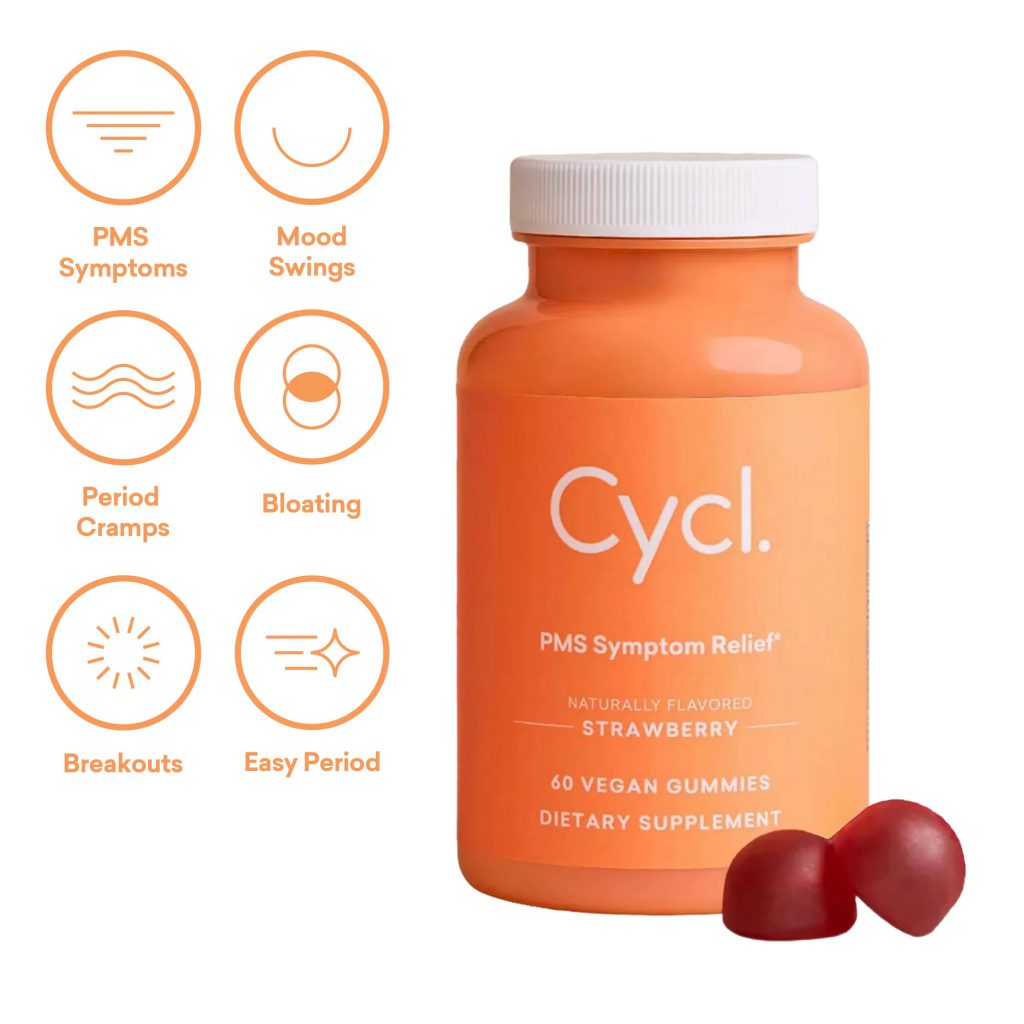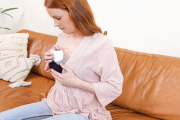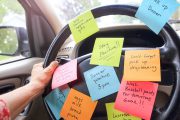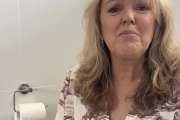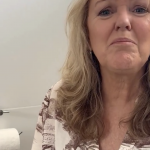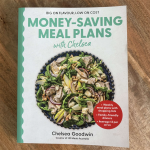I’m a Mum and Women’s Health Expert: Here’s How to Talk to Children About Periods
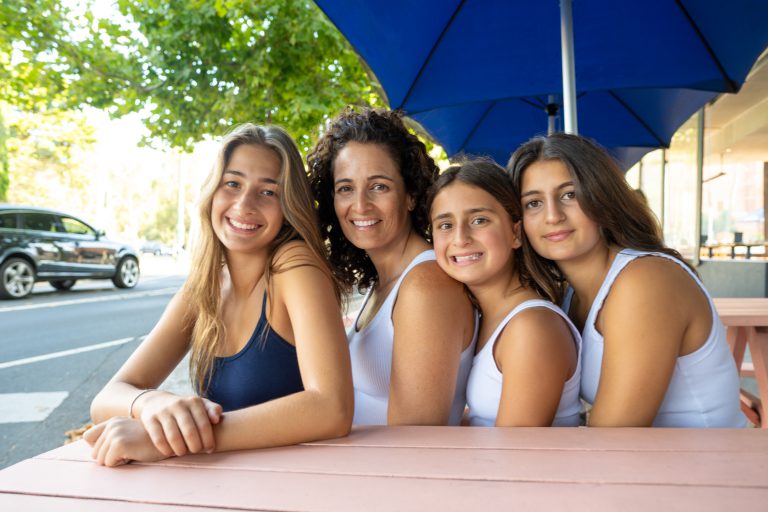
Written by Ronit Leffler
As a mother of three girl, I’ve mastered how to talk to my girls about periods. I believe it’s crucial to have open conversations about periods from an early age. Normalising menstruation and breaking down the stigmas starts at home, and I’ve seen first-hand how it makes a difference.
Puberty can be uncomfortable for young girls, especially those who develop earlier or later than their peers. My eldest daughter, Zoe, faced these challenges when she got her first period at just 10 years old.
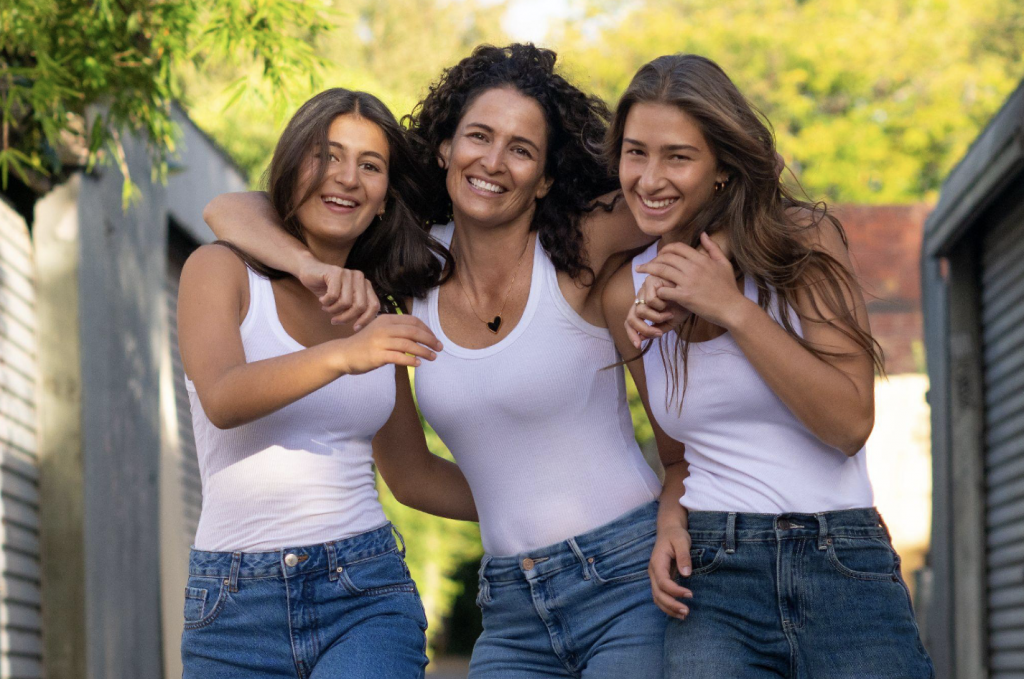
Being one of the first in her grade to start menstruating, there was a lot of pressure to keep it a secret. There was embarrassment, a fear of being teased and a general lack of understanding from her peers.
Luckily, in our household, we always normalised talking about periods and women’s health. When Zoe got hers, she wasn’t in the dark. Her father and I celebrated her in that moment.
Children need to grow up understanding that menstruation is a natural monthly cycle. Zoe found comfort in the fact that I was always open about it. I would celebrate my period every month as a sign that my body was functioning.
I’ve always been open with my children about my own experiences with my periods. If I’m on my period, I say it: “I’m getting my period and I’m feeling sensitive, emotional and a bit low.” By verbalising my symptoms and feelings, I’m helping my children understand that menstruation is just another part of life.
The Role of Sex Education and Social Media
Sex education in schools has improved, but there’s still more work to do in normalising conversations about menstruation. There’s also the issue of online misinformation so it’s essential that we as parents communicate openly with our children.
I also recognise that children are exposed to vast amounts of information: some helpful and some misleading. I always encourage my children to ask questions and not believe everything they see on social media, especially TikTok. We must educate children about menstruation at home and in schools to ensure they get the right information from trusted sources.
How to Start Conversation About Periods with Your Kids
For parents who find talking about periods and reproductive health challenging, I recommend starting early.
I begin talking to my children about periods when they develop breast buds, which typically happens about two years before they get their period. Girls are maturing earlier, and many can start developing breast buds from Year 3 and Year 4.
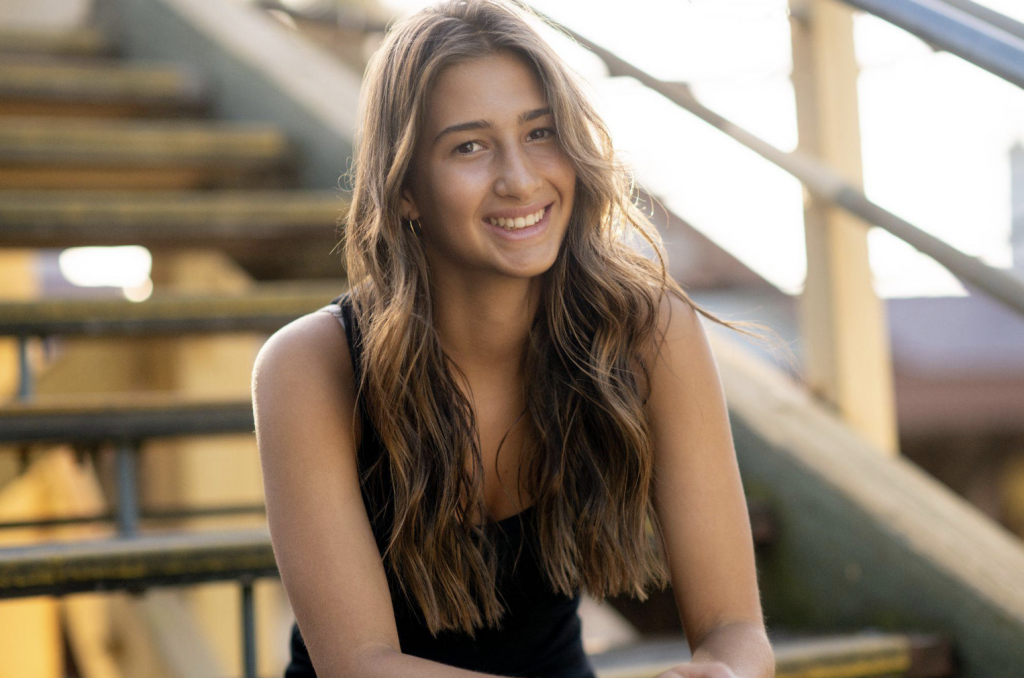
One of the easiest ways to introduce the topic is by discussing conception. I tell my children that without a period, a woman cannot conceive. It’s Mother Nature at work and one of the many beautiful processes that lead to conception. You can discuss the whole process in an age-appropriate way.
Boys need to be part of these conversations too. They interact with girls daily and understanding what they go through fosters empathy and respect for the hardships they may face once a month.
Preparing a Period Kit
Creating a ‘period kit’ is one of the best things you can do to help your child feel prepared. You never know if it’ll happen at school, on holiday, or at a swimming carnival and having a kit in their school bag gives them confidence.
Ours include a pair of period underwear, a Ziploc bag, and pads. I teach my kids how to use the pad, so they know what to do when the time comes.
We discuss period underwear and when to change them, which is usually when you start to feel the slightest bit uncomfortable down below, as well as how to use a pad for extra heavy days. The Ziploc bag is for reusable period underwear or pads for disposal. Having this kit on hand removed uncertainty and embarrassment.
Cycl Health and Managing PMS Symptoms
Zoe struggled with debilitating period pain meaning she often missed school, extracurricular activities, and special events because of the debilitating cramps and mood swings.
Traditional medication wasn’t an option for Zoe, so we started searching for an alternative — one that was natural, effective and easy to take. That’s what led us to develop cyclhealth.com— a range of non-GMO, vegan, gluten-free PMS relief gummies made from natural ingredients like Chasteberry, Dong Quai, Vitamin B6, and Lemon Balm.
Cycl Health has transformed the way Zoe experiences her period. Before, she would collapse in pain but now she’s her active self all month long and never has to miss school or activities because her PMS is holding her back.
It was incredibly hard to watch her suffer as a mother so I’m grateful for a gummy that’s easy to digest and works. With consistent use, PMS symptoms are virtually non-existent and each month, her period arrives by surprise.
The Importance of Cycle Tracking
One last piece of advice I share with my daughters is the importance of cycle tracking. Understanding your cycle helps you plan for things like school or holidays. It’s not just about managing PMS but syncing your lifestyle with your body’s natural rhythms.
By breaking the stigma, having open conversations, and equipping our children with the right tools, we can help the next generation feel empowered and confident about their menstrual health. Periods aren’t something to be feared or hidden; they’re a normal, beautiful part of life.
Ronit Leffler is the Director at Cycl Health, a company dedicated to providing innovative solutions for women’s health. In her role, she oversees operations and helps drive the company’s mission to empower women to feel their best 365 days a year. Ronit works alongside her daughter, Zoe Leffler, who co-founded Cycl Health, to expand its reach across Target, Amazon, TikTok Shop, and cyclhealth.com

